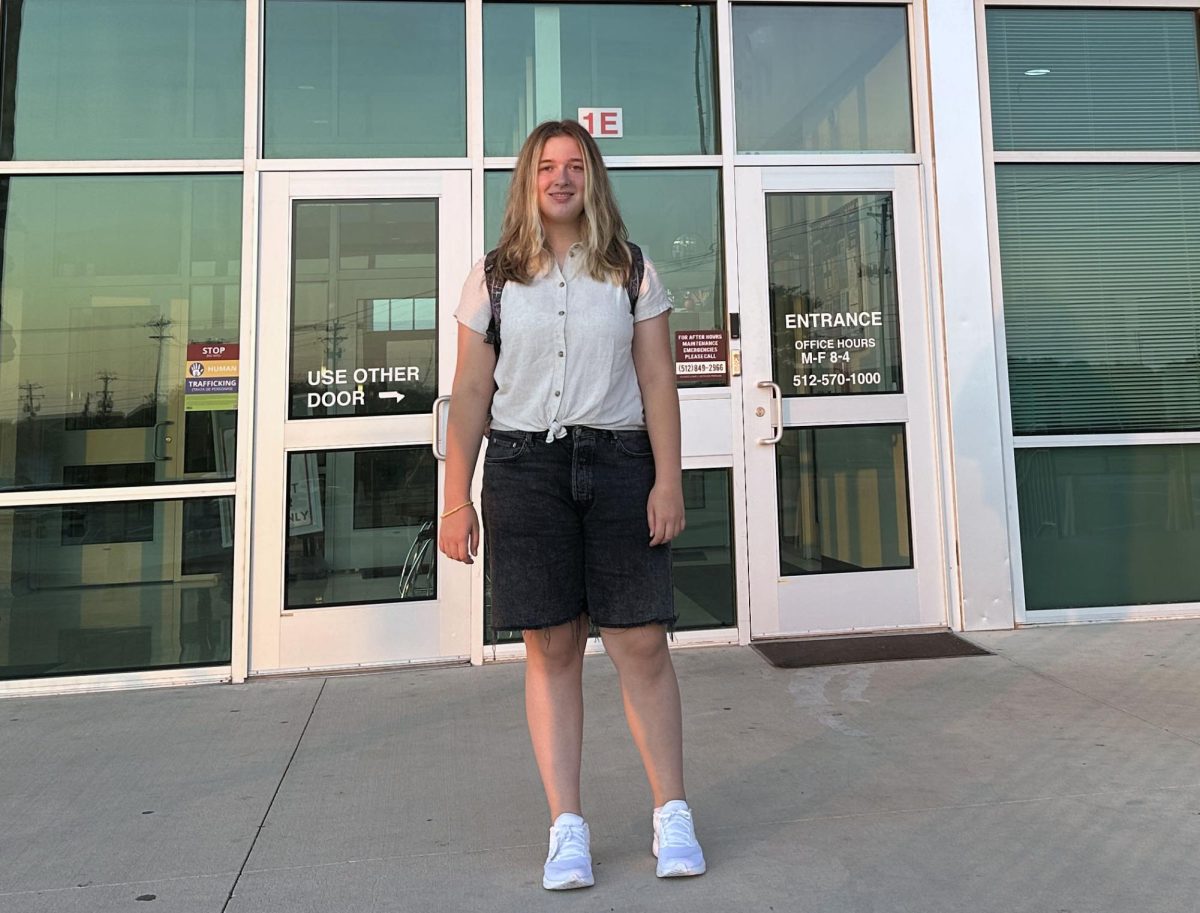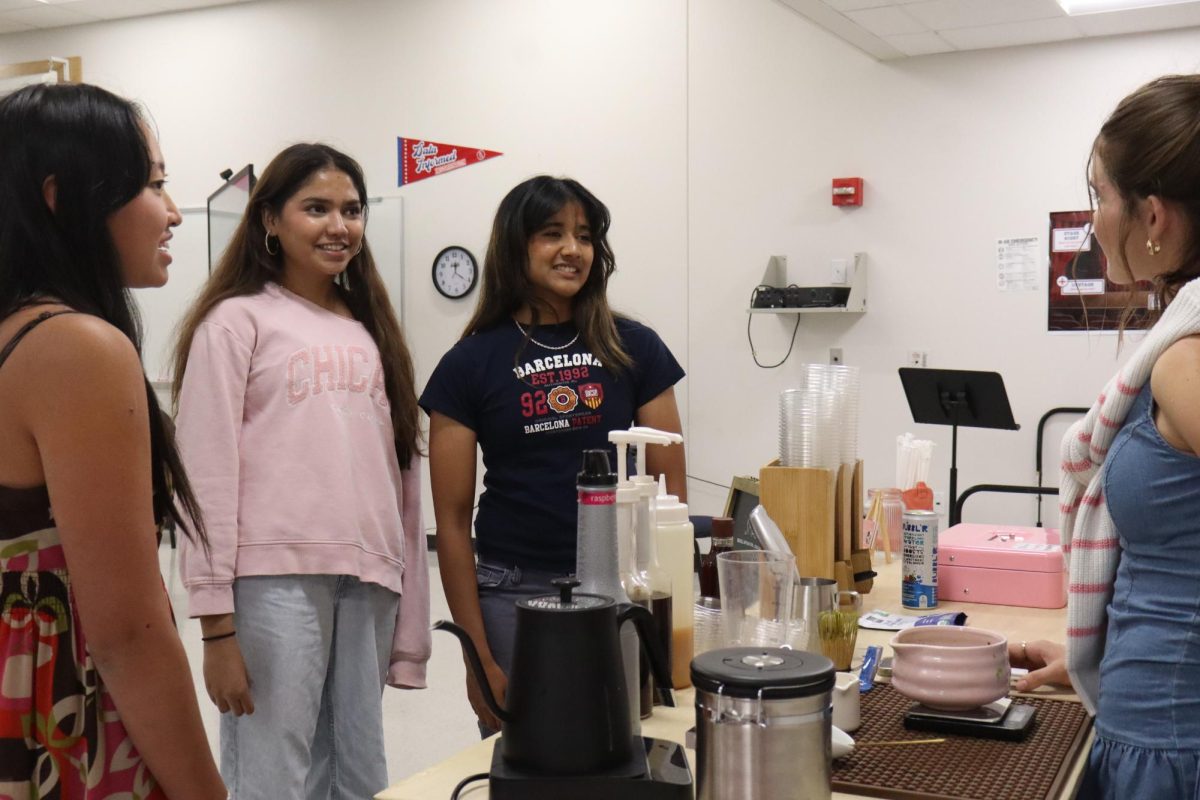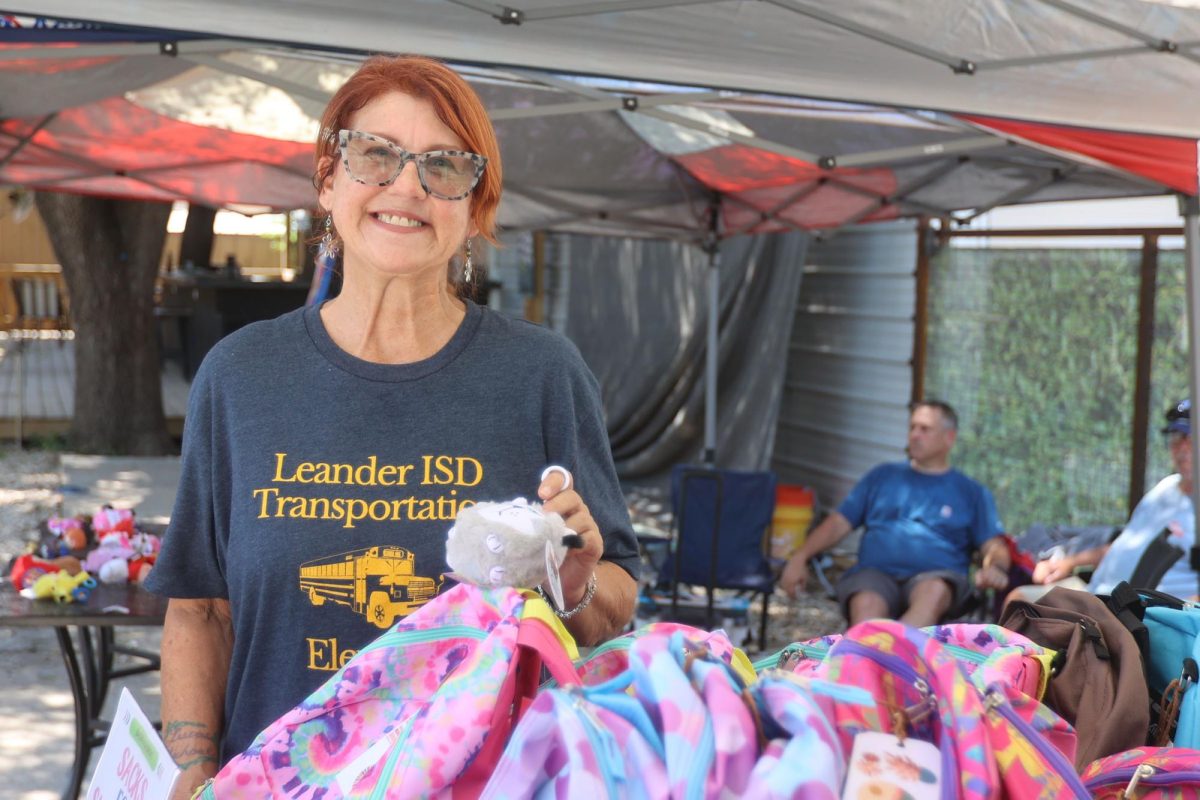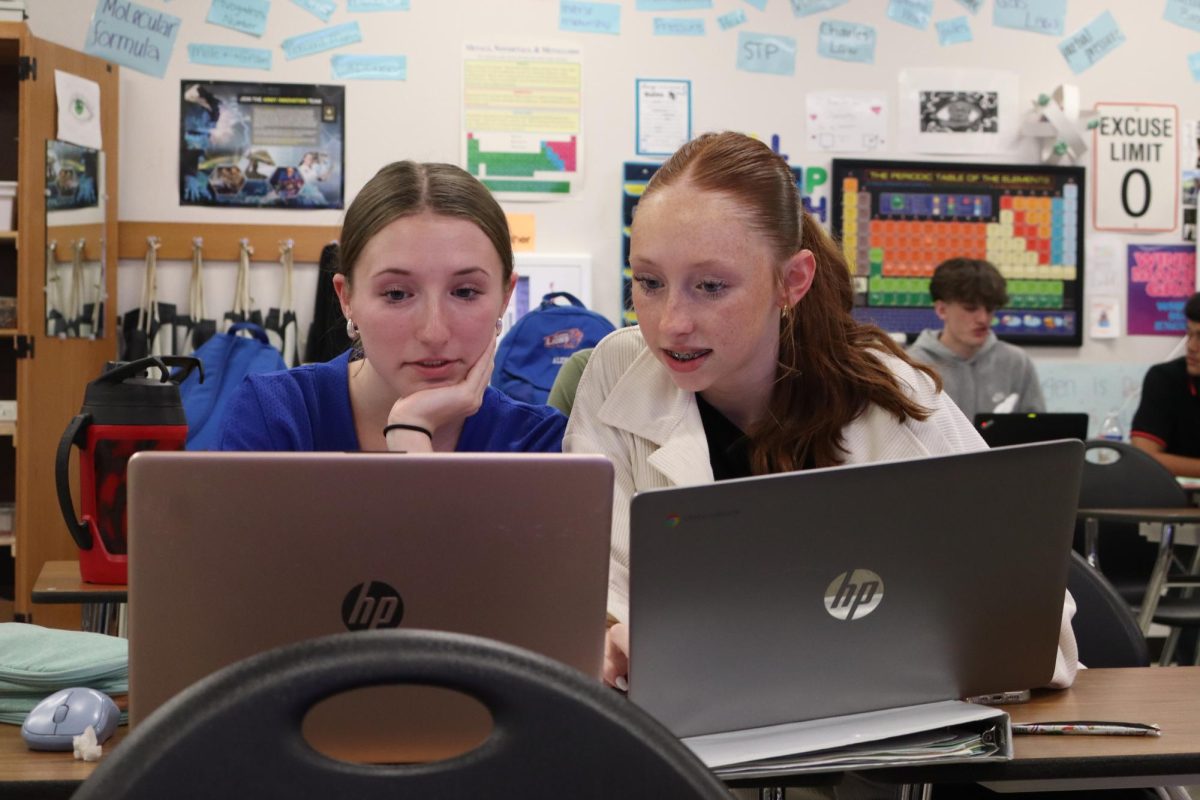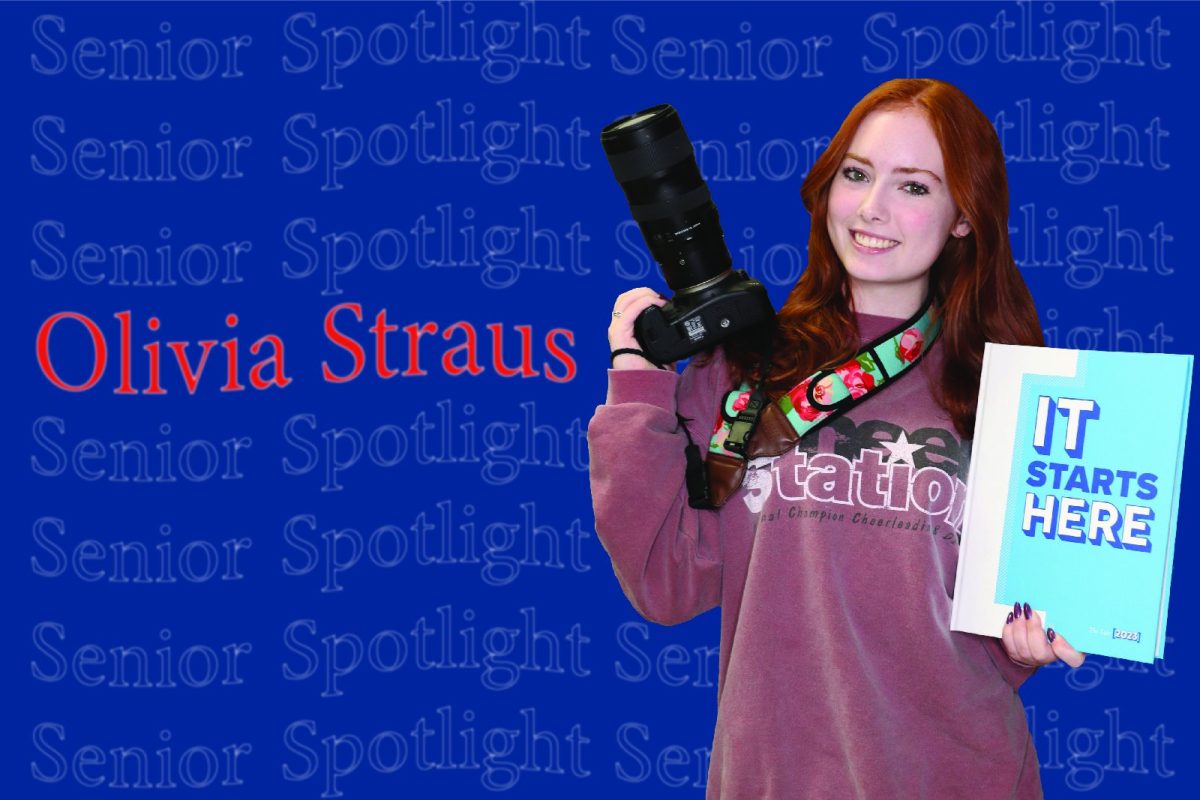The pressurized bubble of travel bursts in the thick Texas heat as junior Diana Halstenberg stepped alone into a new country.
One of three exchange students at LHS, Halstenberg left her hometown of Mainz, Germany, arriving only five days before the start of the school year.
“I was worried that I wouldn’t understand anything in the lessons,” Halstenberg said. “On the first day, I didn’t have my laptop yet – I only had an iPad without Wi-Fi, so I couldn’t do anything. I was scared I wouldn’t be able to follow the classes or find friends. Generally I’m not that good with finding friends, but I’ve talked to people who seem very nice. I wouldn’t consider them really friends, but I’m happy to just talk to people.”
The seeds for this overseas adventure were sown two years ago while visiting family friends in Los Angeles. In their youth, Halstenberg’s father, Sven Halstenberg and her now host father, Francisco Herrera, completed an exchange of their own, and have remained close.
“I miss my friends a lot,” Halstenberg said. “My host parents give me the feeling that I’m welcome in their home – like I’m a third kid to them, but I miss talking to my friends in school. I send my friends pictures and they text all the time in our group chat. I feel like when I go back, they’re going to treat me like they treated me before the exchange.”
Within a year, German students are required to pass 14 courses. To graduate the American school system, students take an average of eight classes annually. Exchange students in LISD must enroll in and receive a U.S. History, English, physics or chemistry and physical education credit.
“The teachers here are way nicer than in Germany,” Halstenberg said. “I could tell that some of my teachers in Germany didn’t want to teach my classes. They are not motivated. But here, everyone is so nice and happy to teach. Because the teachers are so nice, the lessons are more interesting. Honestly, I miss the system that I already know, but I also really like school here.”
Despite finding the familiarity of student/teacher relationships odd, Halstenberg has found contentment and camaraderie in Stephanie Ribas’ AP Language and Composition classroom.
“Diana is doing awesome,” Ribas said. “She’s an absolute pleasure to have in class. She has a buddy who she regularly sits with. I remember one day her buddy wasn’t there, so I said ‘why don’t you join this table,’ and they were all so welcoming. It’s just been so sweet to see the camaraderie.”
From the Panhandle to the Gulf of Mexico, Halstenberg discovered the truth of Texas– everything is bigger.
“The long distances were a shock too,” Halstenberg said. “I can’t walk to school because it’s too far. It’s also way hotter – I’m not good with heat, so I don’t like that. But I love the food and the restaurants and the little neighborhoods. We don’t have neighborhoods with only houses. In Germany, we mainly have [houses with many floors] so it’s weird that houses here only have one floor.”
Foreign exchange students, so far from their families and customs, face isolating conditions. Foreign exchange counselor Meghin Huerta said often these students “have a hard time making friends as, after a while, the luster wears off.” Huerta said she encourages both exchange students and their peers to ask questions and strike up conversations.
“A year ago, I couldn’t imagine doing an exchange program,” Halstenberg said. “I was too afraid to be alone. But now I’m here. My host family has given me courage. If I hadn’t known [my host family] I would miss my parents so much more. I don’t feel so alone.”


